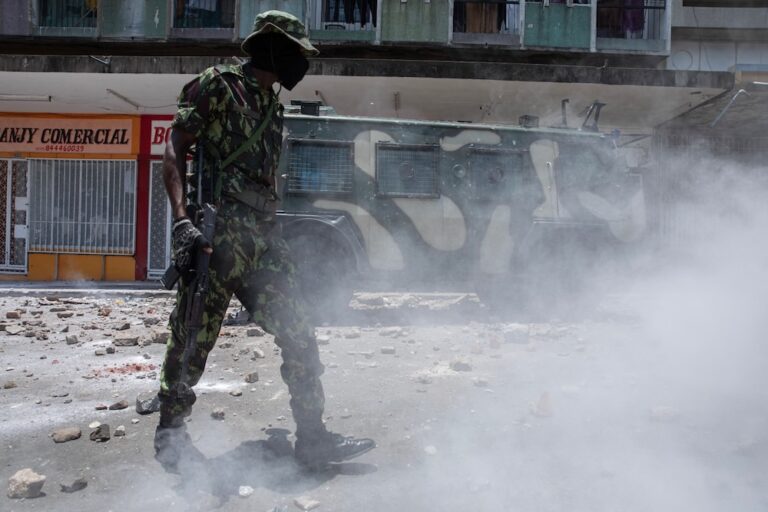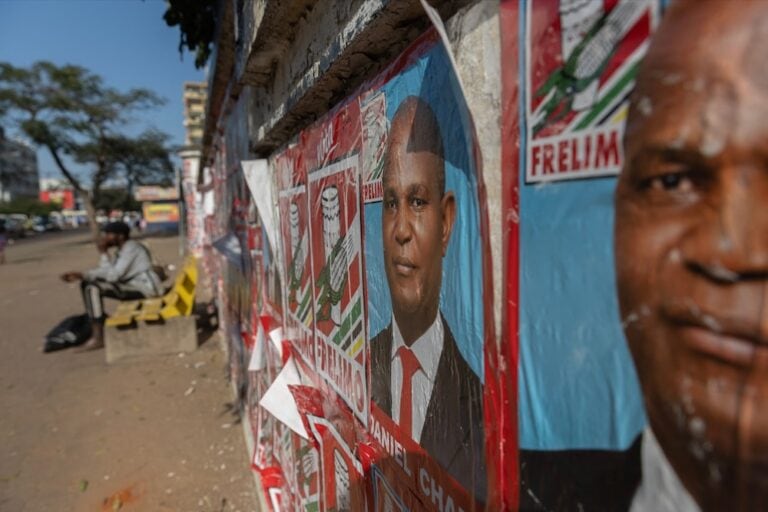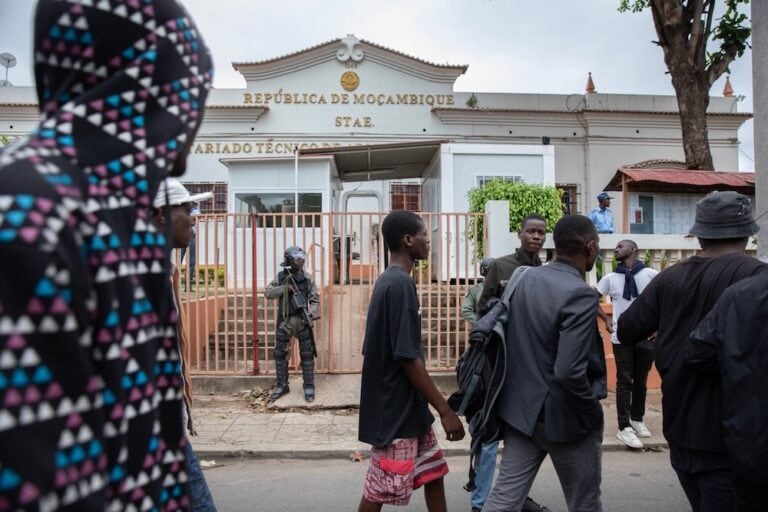(MISA/IFEX) – The Mozambican Attorney-General’s (AG) office has made an attempt to force the independent newsheet “Metical” to reveal the name of one its sources, even though the right of journalists to protect their sources is guaranteed under the 1991 Press Law, reports the Mozambican news agency, AIM. The editor of “Metical”, Carlos Cardoso, received […]
(MISA/IFEX) – The Mozambican Attorney-General’s (AG) office has made an attempt to force the independent newsheet “Metical” to reveal the name of one its sources, even though the right of journalists to protect their sources is guaranteed under the 1991 Press Law, reports the Mozambican news agency, AIM.
The editor of “Metical”, Carlos Cardoso, received a summons on 30 May 2000 from the AG’s office demanding his presence “to make a statement in the case of inquiry number 1/PGR/2000”. He was threatened with unspecified legal measures should he fail to attend.
Cardoso took legal advice and was advised that since it was not a judicial inquiry (i.e. one ordered by a court), he was under no obligation to obey the summons. In addition, the summons was not signed by an attorney, but rather by a clerk.
Nonetheless, AIM reports that Cardoso decided to heed the summons “as a matter of courtesy,” and on 2 June he went to the AG’s office. During his meeting his questioners wanted to know who had sent “Metical” the open letter written by Assistant AG Afonso Antunes, and published in the paper on 25 and 26 May.
The letter concerned major banking fraud in the country and the failure to prosecute the main suspects in the case. Immediately after the letter appeared in “Metical”, the AG, Antonio Namburete, suspended Antunes from meetings of his office’s decision-making body, the Technical Council, and ordered an inquiry into “the circumstances and motivation” which led to the publication of the letter.
During the questioning at the AG’s office, Cardoso refused point blank to say how the letter had reached him. In an editorial in “Metical”, Cardoso said he “thought it very odd that they were asking an editor how his paper received a document whose very author described it as an ‘open letter’. If the letter is ‘open’, then how can it be important to know who sent it to the press?” Cardoso dismissed the inquiry ordered by Namburete as “a monumental waste of time.”


